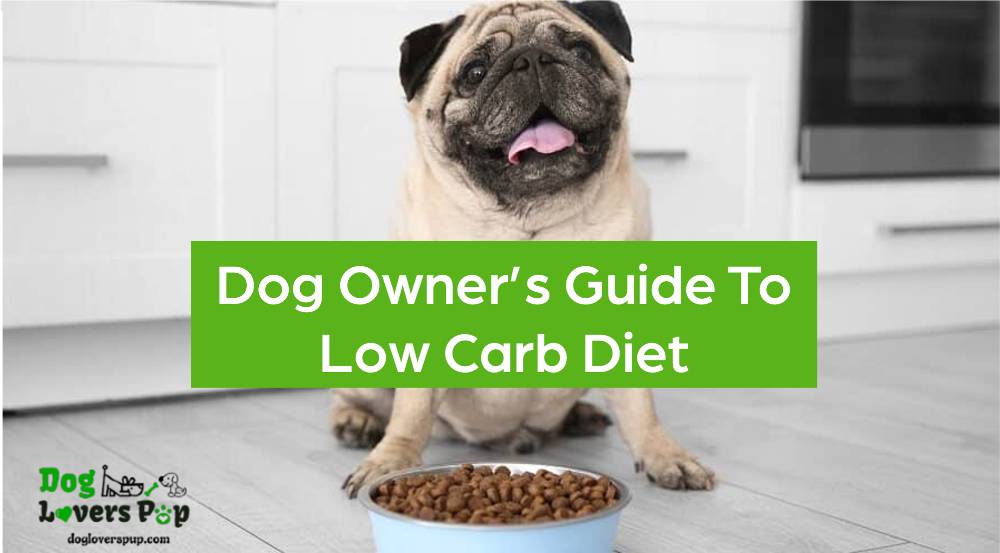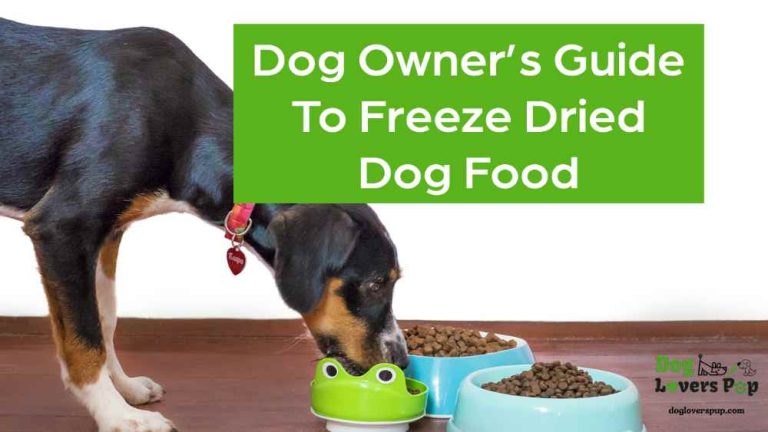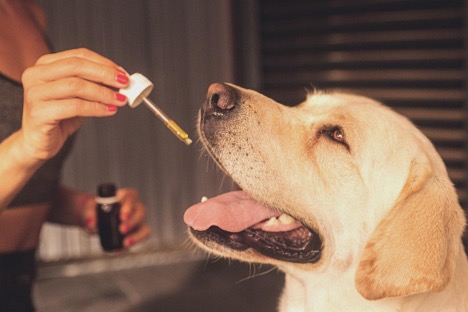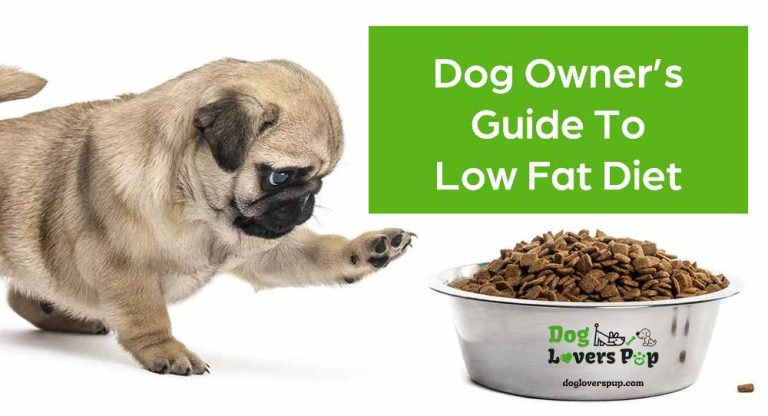Everything Dog Owner Needs To Know About Low Carbohydrate Dog Diet
If you want your dog to have a long and happy life, it is important to take good care of him/her and make sure they eat healthy food to keep them in top shape. A new trend for feeding dogs is to feed them low-carbohydrate diets. In this article, we will discuss the pros and cons of having low carbohydrates in dog food, the benefits and side effects of such a diet, what are the health issues it can address, and many more.

What Is Carbohydrate?
Dogs need a certain amount of energy to sustain the normal activities of their daily lives. The three primary dietary components that provide energy are protein, carbohydrates, and fats. Carbohydrates are important nutrients & provide the energy that dogs need to function and live a healthy life.
The most common carbohydrate sources are found in grains, fruits, vegetables, rice, corn, barley and other sources. There are two types of carbohydrates: simple and complex carbs. Simple carbs include white rice and table sugar – they are quickly and easily metabolised to provide short-term energy. On the other hand, complex carbohydrates are found only in unprocessed whole foods (plant food) such as vegetables – they aid digestion, help maintain the immune and nervous systems and help regulate metabolism.
Dogs do not need a high amount of carbohydrates whether it be a complex or simple carbohydrate. The excess carbs are not good for their health as they will cause obesity and diabetes. But it is best if they get some because this helps them have better digestive health. It is important for dogs to get dietary carbohydrates.
What Are Some Good Sources of Carbohydrates?
Carbs which are found naturally in green leafy vegetables, grass, fruit and whole grains are healthy for dogs. Vegetables and fruits are good sources of carbohydrates and they also contain essential vitamins, minerals, fiber, antioxidants and other nutrients that your dog needs for a healthy life. Cooked carrots, pumpkin or apples are some examples of good sources of carbohydrates to give your pups.
Pros And Cons of Low Carb Dog Food

A high carbohydrate diet will cause obesity and diabetes in dogs. The excess carbs are not good for their health, whether it be a complex or simple carbohydrate. A low carbohydrate diet is any diet that has less than 10 to 26 percent carbohydrates. There are many benefits that come with feeding dogs low carb diets, some of these include:
- Help overweight or obese dogs to lose weight and become fit and lean. A study revealed that when dogs were fed a low-carbohydrate food for six weeks, they lost weight and the percentage of body fat went down by 5 percent.
- Better management of diabetes in dogs. It can be used for the reduction of insulin in diabetic dogs. This makes it easier to manage their blood glucose levels.
- Treat metabolic disorders. Dogs with any form of metabolic disease or disorder will benefit from a low carbohydrate diet.
- Cancer management. It has been found to have benefits on some forms of cancer. In some cases, the diets can stop cancer from spreading especially when combined with other cancer treatments.
Low carbohydrate diets for dogs can help in reducing the chances of them getting serious health problems. However, there are some drawbacks that come with low carb diets. These include:
- It is a more expensive option compared to other types of dog food
- Some dogs may not like the taste and refuse to eat it.
- It is not suitable for all dogs and some may lose weight rapidly, leading to malnutrition and muscle wastage.
- If the diet is not balanced, it may lead to heart diseases, dry skin and chronic fatigue.
Every dog owner wants their pooch to be healthy and happy, but this can only happen if the right type of food is given to them at the right time. However, before switching your dog’s diet to a low-carbohydrate one, do consult your vet. He/she will help you determine the right amount of carbs that will be good for your dog.
How Much Carbohydrate Does My Dog Need Daily?

Dogs do not need a high amount of carbohydrates whether it be a complex or simple carbohydrate. They only require about 0.5 % of their daily energy intake to come from carbohydrates. The recommended average amount of carbs for dogs is about 18% carbohydrate. But if your pups are diabetic or obese then the vet may recommend a low carbohydrate diet, and not more than 10-12% of their daily caloric intake should come from carbohydrates.
How to Tell if My Dog's Food Contains Low Carbohydrates?
One sure way of knowing that your dog’s food is low carbohydrate is to check the food label to make sure there are not more than 10% carbohydrates in the food you select.
Some food labels may state that it is low carbohydrate. However, this might not be true because not all manufacturers are honest about the ingredients in their products. Some companies might put “no carbs” on the food label, but there might still be a small amount of carbohydrates. This is why it is advisable to go through the ingredients and confirm that it is low carbohydrate.
Is A Low Carb Diet Good For Dogs?
Low carbohydrate diets can help in weight loss and management but this does not mean that every dog will benefit from it. If you’re not sure if this type of diet is suitable, then it may be best for you to check with your vet first before switching to any nutritional type of diet for dogs.
What Are The Side Effects Of Low Carb Diets?
There are no major side effects of low carbohydrate diets. However, if your dog is already on some form of medications or treatments, then you should consult with your veterinarian before switching him/her to a low-carb diet.
What Are The Common Carbohydrates Found In Commerical Dog Foods?
There are many types of carbohydrates found in commercial dog foods. These may include potatoes or sweet potatoes, peas, rice, barley, oat, corn, wheat etc. Even though sweet potatoes are considered appropriate for diabetic dogs, you should still talk to your veterinarian before using them as the main ingredient in your dog’s food.
What Are Some Good Low Carbohydrate Dog Food Brands?
There are many good brands for low carbohydrate dog food. There are many brands available in the market which provide quality low carb dog foods. Dog foods are manufactured by giants like Purina, Pedigree etc. If you like some recommendations, check out our reviews on some of the top-rated low carb dog food brands on our site.
Tips for Transitioning Your Dog to A New Diet
- Start by gradually adding small amounts of the new food to your dog’s old food. This will help their digestive system adjust to the new diet.
- If your dog is resistant to the new food, try mixing it with their old food until they are used to the taste.
- Be patient! It may take a few days or weeks for your dog to adjust to its new diet.
- If your dog has any digestive problems after switching to a new food, consult your veterinarian. They may need to switch to a different diet altogether.
Transitioning your dog to a new diet can be a challenging but rewarding experience. By following these tips, you can help your dog make a smooth transition to its new diet. And remember, if you have any questions or concerns about your dog’s diet & nutrition, don’t hesitate to consult your veterinarian.
Final Thoughts
Low carb diet is good for diabetic and obese dogs because it keeps their blood sugar level in control. It is also good for dogs with urinary stones because it provides all the necessary minerals and vitamins without excess carbs. However, many vets do not recommend an exclusive low carb diet to dogs that are otherwise healthy.
This is because a dog’s body needs carbohydrates to function properly. Every dog has different dietary requirements. Some dogs might do better on a diet that has more carbohydrates, whereas others might benefit more from a diet with lower carbohydrates. If you’re not sure if this type of diet is suitable, then it may be best for you to check with your vet first before switching to low carbohydrate diets.
Disclaimer: This article doesn’t intend to replace professional veterinary advice, nor should it be used as a substitute for veterinary services, diagnosis, or treatment. The content on this website, including information and opinions expressed herein, are intended for general informational purposes only. In case you have concerns or questions regarding your dog’s health and diet requirements, please consult your veterinarian before doing anything that might affect it.
DogLoversPup.com and the writer are not responsible or liable for any damage, liability, costs, or claims arising from any possible consequences of the reader’s action after reading this article.




